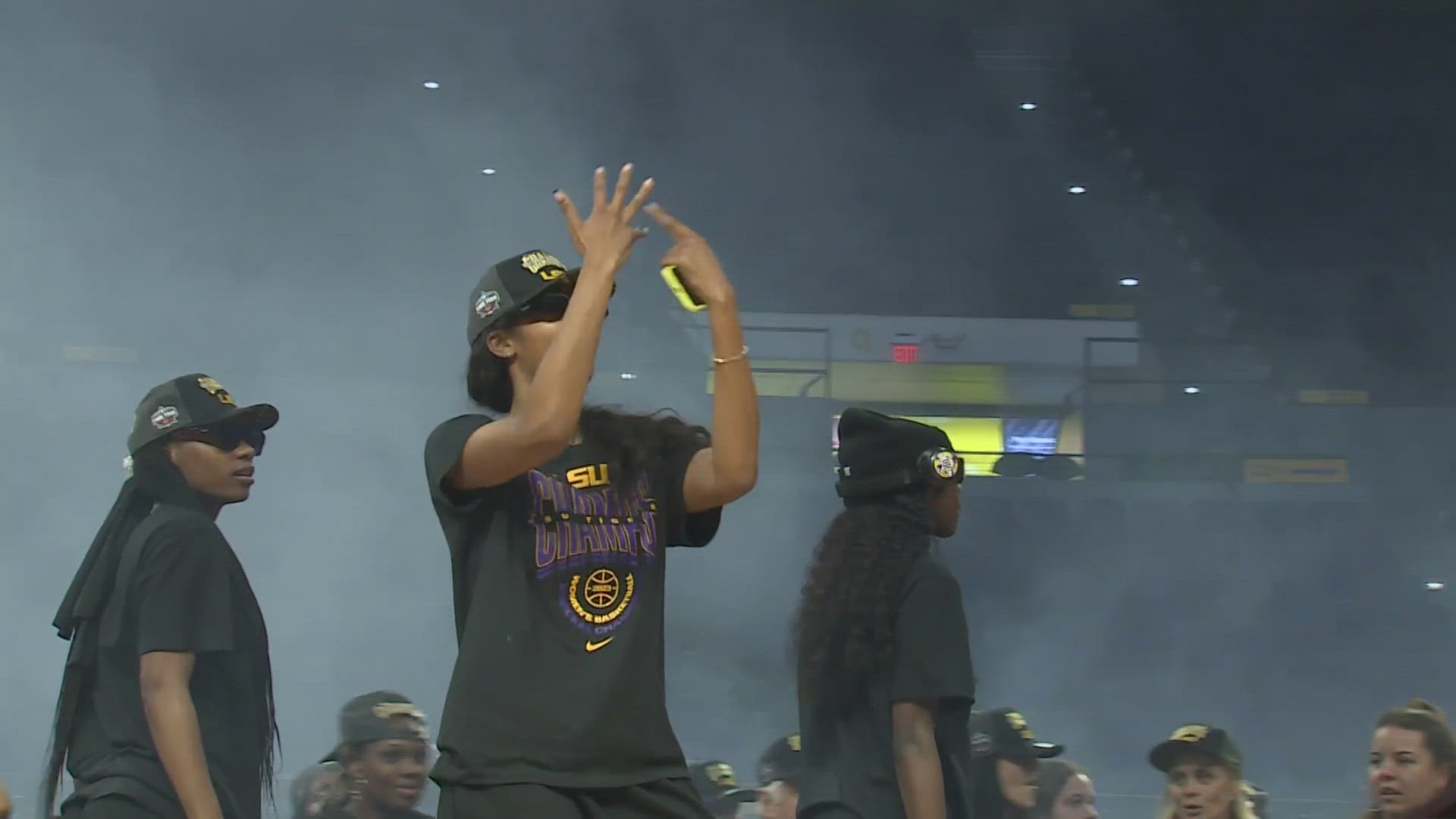BATON ROUGE, La. — When LSU Women’s Basketball star player Angel Reese realized with just seconds left in the March Madness game against Iowa, that she and her team would be the ones to hoist the national championship trophy up, she made a trash-talking gesture. Reese made the “you can’t see me” hand movement toward her opponent Caitlin Clark.
The gesture, initially started by Black rappers, then popularized by Wrestler John Cena is usually a way to say “I did this” or “you can’t stop me.” Cena uses it to say he’s too fast for his opponents.
Reese also pointed to her ring finger, indicating a title ring was in her near future for the win.
Moments after the gesture, many took to Twitter to criticize the 20-year-old. Both trolls and those prominent in the sports media world called Reese “classless”, “an idiot” and threw expletives her way.
During the post-game press conference, Reese’s coach, Kim Mulkey, said she doesn’t even use social media.
“I looked at Alexis and go "What did she say? What is the blowup about?" and quite frankly I don’t care. I waste no time on all that stuff but it’s the world we live in, but, guys I’m too old, I’m too old to worry about all that stuff now if we’re doing something or if she’s doing something that embarrasses the program my coaches and my administrators usually help with that,” Mulkey said.
Mulkey has even pointed out that she used to trash talk when she was on the court herself.
Sociologists say the harsh criticism the basketball player is receiving is rooted in racism and sexism.
“What we’re really talking about is the fact that Black women do not just face racism, there is a whole other [...] in these various spheres in which we experience racism and sexism, classism and other paradigms that work simultaneously to marginalize us comparable to white women," Dr. Andrea S. Boyles, Sociology Professor at Tulane said. "There’s an entire history where that has played out and not only played out in US specifically history in terms of white men sort of being precipitating it but white women have also played a role in that.”
Dr. Boyles says that the misogyny has been compounded by racism, an intersection termed Misogynoir, by Moya Bailey.
“Misogyny is continuing to be an issue but even within these hateful or sort of very sexist ideas about women even within that, if there’s a woman to be protected or even idealized as innocent or to be championed in some type of way, that onus often goes to white women,” Dr. Boyles said. “What we see happening with Angel Reese is the fact that her having responded, which is what it is and the history of America, it’s typically a response to the slighting or the oppressive engagement of white people.
"Then she then becomes identified or caricatured in these stereotypical ways in misbehaving as it goes back to those tropes, very racialized tropes of who black women are."
"She’s not behaving she’s not sophisticated she doesn’t have class somehow she’s brought a blemish to the game, unsportsmanlike things that were not extended to Caitlin when she first initiated those exchanges.”
Others, like Dillard University’s Director of the Department of Racial Justice, Dr. Ashraf Esmail, point out that men trash talk all the time, but no one says anything.
“That’s all they do no one says anything. They do it up and down the court, no one says anything. It’s part of the game and I thought it’s a double standard of men vs women why are they getting so much attention,” Dr. Esmail said.
Even with all the criticism, Reese, lovingly nicknamed the “Bayou Barbie” is standing ten toes down in her confidence, especially now with a national title to back up her trash talk. Reese took to twitter to say “and no. I’m not keeping it cute.”
► Get breaking news from your neighborhood delivered directly to you by downloading the new FREE WWL-TV News app now in the IOS App Store or Google Play.

